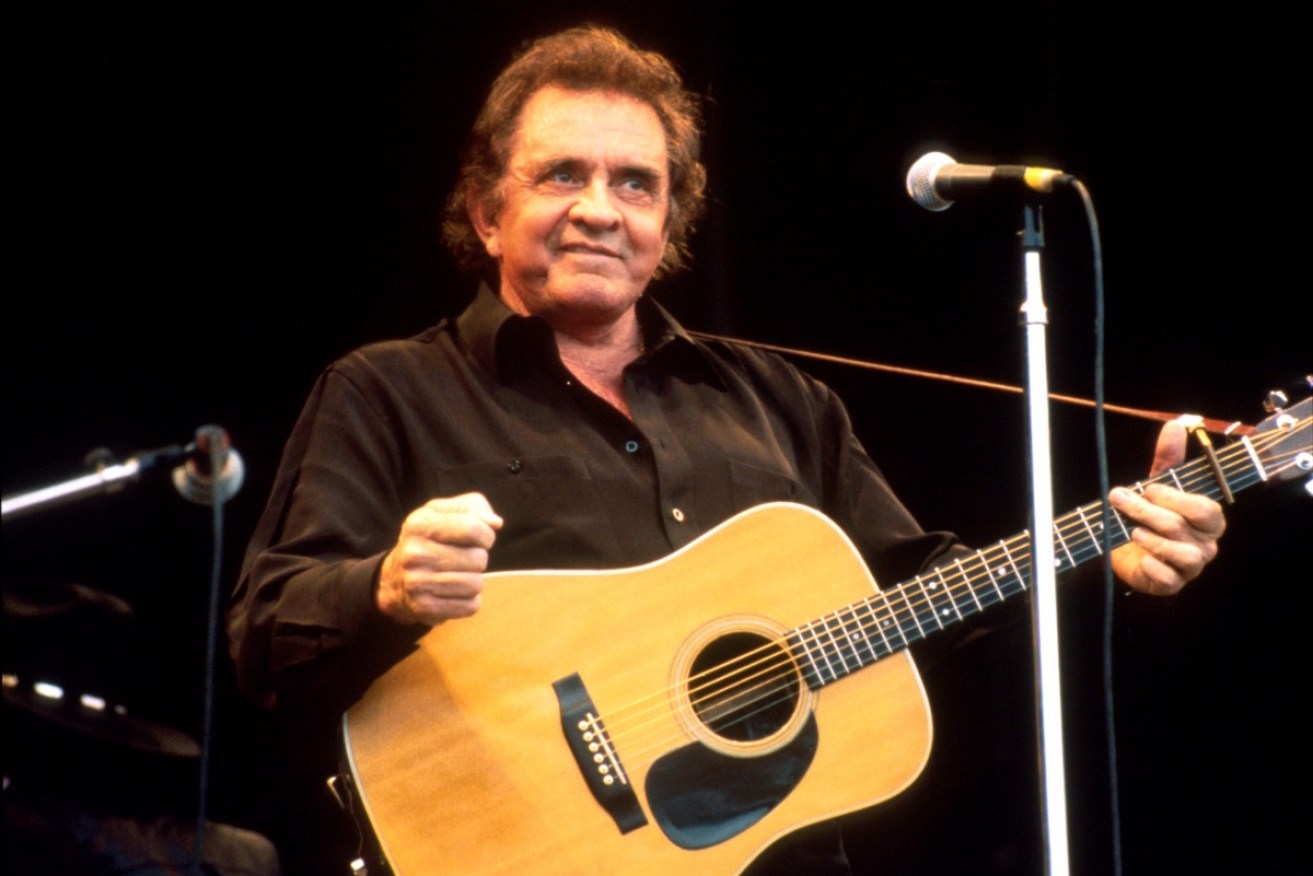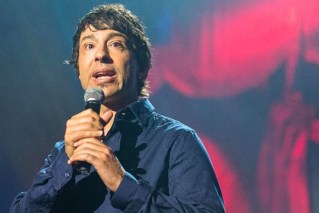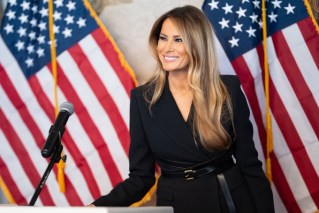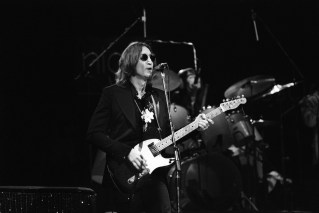Johnny Cash poems inspire new album with music greats

Johnny Cash playing at the Glastonbury Festival in 1994. Photo: Getty
Trawling through a dead parent’s personal papers can never be an easy experience, but for John Carter Cash it was difficult in more ways than one.
When Johnny Cash died in 2003, the music legend left behind an office brimming with notebooks and folders full of his often handwritten work.
“Well, my father never really threw anything away it seems, and like many great writers he never stopped writing,” John Carter Cash says with amazement.
“There were some 2000 pieces of paper, and within those there were biblical study notes, there were poems, there were lyrics to songs – hand written – that had already been published.”
Tantalisingly, there were also hundreds of unpublished poems and lyrics that Cash says provided a window into his late father’s soul.
“I think if my father was a truck driver, I would have wanted to share the beauty that was there. He just happens to be Johnny Cash,” he said.
He was a good man and there’s a lot of beauty in those writings.
“I reached out to different artists and they put together the music.”
And so began the series of musical collaborations that has resulted in the new 16-track album, Johnny Cash: Forever Words.
Friends and admirers of the singer’s life and work made a beeline to Johnny’s cabin-turned-studio in Hendersonville, Tennessee.
And what a roll call it was: Elvis Costello, John Mellencamp, Brad Paisley, Kris Kristofferson, Alison Krauss and Willie Nelson, among many others.
Roseanne Cash, one of Johnny’s daughters from his first marriage and a singer-songwriter in her own right, sings The Walking Wounded, a poignant song about the discrimination faced by many Vietnam veterans.
John Carter Cash said the beauty of his father’s writing was that it transcended all musical styles.
“There is a diverse array of lyrics that could work across the world of genres of music,” he said.
“And of course within those genres of music, whether or not they love American hip-hop or whether the artist performs blue grass gospel, they all have the same Johnny Cash record collection.”
The most bitter-sweet number comes from the acclaimed late singer Chris Cornell.
In what turned out to be one of his last solo recordings, Cornell ventured to the Tennessee cabin to sing the haunting, You Never Knew My Mind.
“I gave Chris a few pieces and this was the one he chose,” Cash said.
“My father wrote it in 1967 when he was at the end of his first marriage with his wife, Vivienne, and Chris connected deeply having been through struggle and loss.”
That struggle consumed Cornell just months later, when he died by suicide after a Soundgarden gig in Detroit.
In a video released to accompany the album, Cornell spoke of his admiration for the country music giant.
“I met the man once or twice in my life and he was so gracious,” he said.
“He was such an influence on me as a musician and he covered a song that I wrote (Rusty Cage).
“Since that time I have felt he is one of the bigger presences in my life in terms of an artist that I am a fan of.”
Nearly 15 years after his father’s death, John Carter Cash still receives messages from fans old and new.
He delights in telling about the emails describing five-year-old kids dressed in black standing in front of mirrors singing Ring of Fire.
“Well, he is the ultimate image of cool, I suppose, the man in black and what not,” he said.
“I think when a lot of people hear my father’s music they are immediately drawn in.

Poems that Johnny Cash wrote have been turned into a new album. Photo: Supplied
“What’s interesting about my father is the more you peel back the layers of the onion, the more you find.
“There is a brilliance and depth beneath each layer, and there is a defining mystery that is hard to put a finger on.”
Cash is the first to admit his famous dad wasn’t an angel, but he points out the singer was honest about his frailties.
“He was a man of many complications and paradoxes, but beauty too – it was all founded on a simple love, heart and within his nature, great love for my mother,” he said.
“But he was not without flaw, and he was not afraid to say, ‘I’ve failed and I’ve fallen down’.
“I think him being able to say that, people connected with their own imperfections and say, ‘somebody that strong, somebody that powerful, that could admit his limitations and shortcomings’ that helps a lot of other people, too.”








